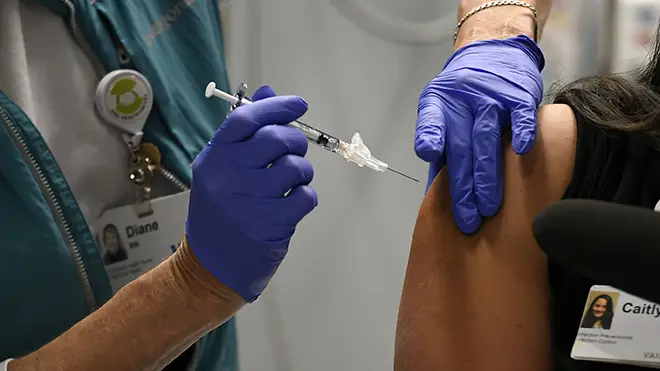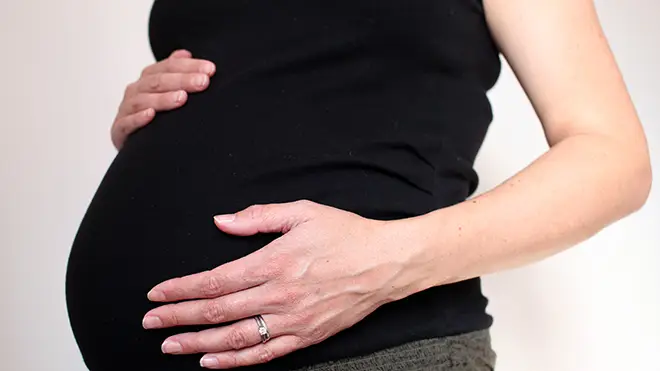
James O'Brien 10am - 1pm
9 December 2020, 11:37

Pregnant women, children and those with allergies are being told they can't have the Covid vaccine currently being rolled out across the UK - here's why.
The UK were one of the first countries to roll out the Covid-19 vaccine in a priority order list, however, it's been confirmed there are three types of groups who can't have the new Pfizer Covid vaccine.
Being warned against the immunisation by experts, the three groups told not to vaccinate themselves against coronavirus are pregnant women, children under 16 and those with allergies.
Pfizer Covid vaccine FAQs: Where is it made, how many doses you need and side effects
Here's a look into the groups who can't have the Covid vaccine and why:

Despite the Pfizer and BioNTech vaccine being 95% effective, there is a lack of evidence and testing done around pregnancy.
The Joint Committee on Vaccination and Immunisation (JCVI) have said: "Given the lack of evidence, the JCVI favours a precautionary approach, and does not currently advise Covid-19 vaccination in pregnancy."
During vaccine trials, it's unlikely they would test on pregnant women meaning it would be difficult to tell the true effects.
Companies are likely to wait for more data to emerge, particularly from the mass roll out, before considering pregnant women just yet.

Coronavirus vaccine: Who will get it, when and how?
Just like with pregnant women, there is little evidence on the impact of the Covid vaccine on children as they simply wouldn't test on those under 16.
There are some special allowances for children who are very high risk, JCVI said: "The committee advises that only those children at very high risk of exposure and serious outcomes, such as older children with severe neuro-disabilities that require residential care, should be offered a vaccination.”
Groups of people with any allergies to the ingredients in the Pfizer vaccine should also avoid getting the jab for now.
While a reaction to the vaccine ingredients is thought to be rare, it has been warned against for now.